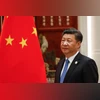China's Ministry of Housing has introduced new initiatives to revitalise the country’s property market, including pumping up the sector with $550 billion in loans by year end for housing projects.
The move marks the latest effort by policymakers to spur economic growth in the world's second-largest economy.
On Thursday, the ministry revealed plans to expedite credit access for distressed property developers and renovate 1 million homes in urban shantytowns, a strategy previously used during a past real-estate downturn, several media outlets reported.
Boost to housing projects with major funding
The Minister of Housing and Urban-Rural Development, Ni Hong, announced that an additional 4 trillion yuan ($550 billion) in loans would be made available by year’s end for housing projects on the government’s “white list.” These projects, eligible for state-backed funding, will help complete unfinished homes and ensure deliveries to buyers. The Minister also urged the banks to support more projects.
As of Wednesday, loans for these approved projects reportedly amounted to 2.23 trillion yuan, a figure that is expected to double by the end of 2024, according to Xiao Yuanqi, deputy director of the State Financial Regulatory Administration.
The housing ministry also plans to modernise 1 million apartments in urban shantytowns by monetising resettlements, a similar approach taken in 2015, a report by The Wall Street Journal claimed. During that period, local governments compensated residents of demolished homes with cash or new housing, funded by loans from state policy banks.
More From This Section
Ni confirmed that state banks would continue offering financing for redevelopment, while the local governments can issue special-purpose bonds to support these efforts. Commercial banks are also expected to extend loans for these projects.
Central bank considers further property market aid
China’s central bank is contemplating additional measures to stimulate the property sector, including allowing policy banks and commercial lenders to provide loans for land purchases by developers. Tao Ling, vice-governor of the People’s Bank of China, mentioned that relending facilities could be tapped to assist banks in providing these loans.
Following recent stimulus actions by the central bank, the real-estate market has shown early signs of improvement. Ni indicated that October’s property data should reflect “positive and optimistic results.”
China’s first tranche of stimulus in efforts to revive economy
Last month, China’s central bank introduced its largest stimulus package since the pandemic to boost the economy, which has been struggling with deflation. The package, which included increased funding and interest rate cuts, is part of broader efforts by policymakers to restore confidence in the economy after disappointing economic data raised fears of a prolonged downturn.
Chinese stocks and bonds surged following the announcements, with the yuan reaching a 16-month high against the dollar. The measures, such as a 50 basis point cut in average mortgage rates and a reduction in down-payment requirements to 15 per cent for all home types, are part of the central bank’s broader strategy to ease the burden on households and stimulate the property market.
Why is China’s property market in crisis
Despite these interventions, China's property market has been in a severe slump since its peak in 2021. A series of developer defaults has resulted in large inventories of unsold apartments and numerous unfinished projects.
Although Beijing has eased home purchase restrictions and slashed mortgage rates, demand remains weak, and home prices saw their steepest drop in more than nine years in August. With 70 per cent of household savings tied up in real estate, the property crisis has significantly dented consumer confidence. However, analysts remain sceptical about whether the latest measures will have a meaningful impact on the long-term recovery of the sector.
)